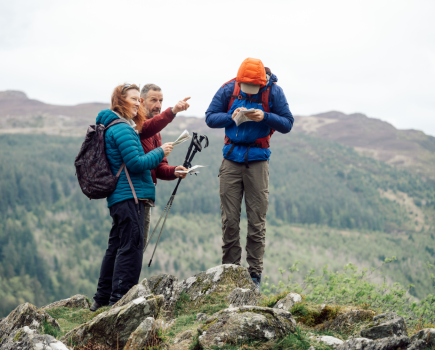Only a fraction of the wildlife crimes that take place in Britain every year result in prosecution. Most likely pass completely undetected – for every individual jailed under raptor persecution charges, for example, the RSPB estimates that thousands go unpunished. Convicting wildlife criminals is challenging, but detecting incidents of persecution is even harder. That’s where walkers can help.
“Crimes against wildlife often occur in the middle of nowhere, in remote locations with no CCTV, ring doorbells etc to capture crimes occurring,” says Detective Constable Paul Flint of the UK National Wildlife Crime unit. “That’s why we ask the public to be our eyes and ears when they are out enjoying our great outdoors. You might see that vital piece of the puzzle we need to know to take action.”
The form of wildlife crime you’re most likely to encounter in the uplands is bird of prey persecution. There are hotspots in North Yorkshire, Derbyshire and the North Pennines, with 72% of cases in England linked to land managed for gamebird shooting. Learning how to identify and act on signs of persecution in these areas is important – not just for combatting crime, but for your own personal safety. Poisoned bait has resulted in the death of dogs, “and it’s purely luck that we haven’t had a member of the public killed,” adds Paul.
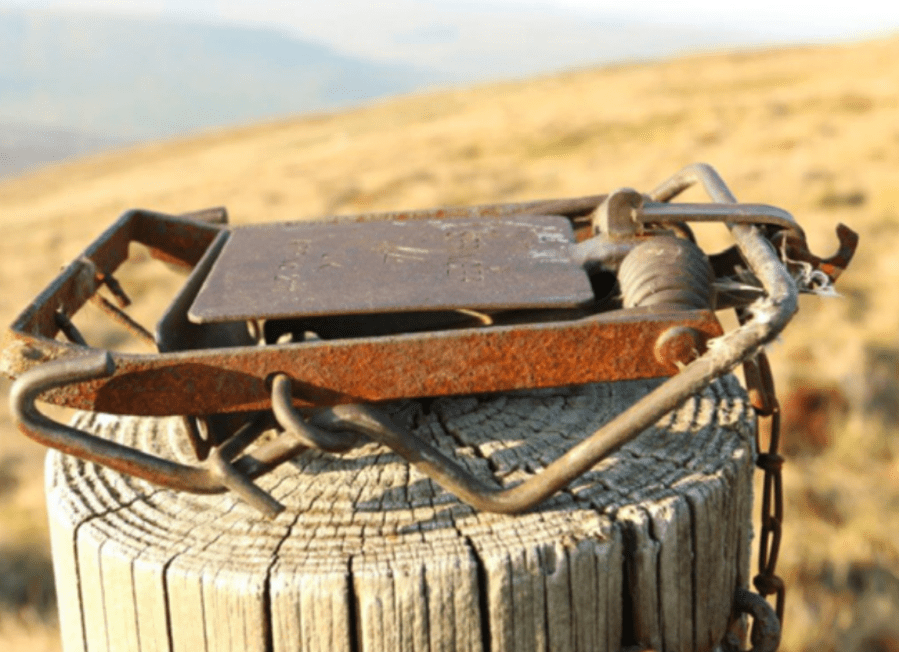
Spot the signs
Be particularly wary of poisoned bait – dead rabbits, pheasants, pigeons or other animals, which might be found alongside dead birds of prey. “One of the methods of killing birds of prey is by using poisons,” explains Paul. “Some of the poisons are so incredibly dangerous that only a few granules could kill a human, so if you see a scenario like this take extreme caution.” Look out for traps, too – but bear in mind that some types can be used legally. The traps most likely to be illegal are ‘pole traps’; spring traps set on top of a post. Spring traps not enclosed within a cage tunnel are also breaking the law.
Like traps, firearms can be used both for legal predator control and for raptor persecution. “The best advice for members of the public would be ‘if what you are seeing feels wrong, report it’,” says Paul. “The police would rather check something and find out it is ok than not be told.” Bird of prey persecution isn’t the only type of wildlife crime you might see while out walking.
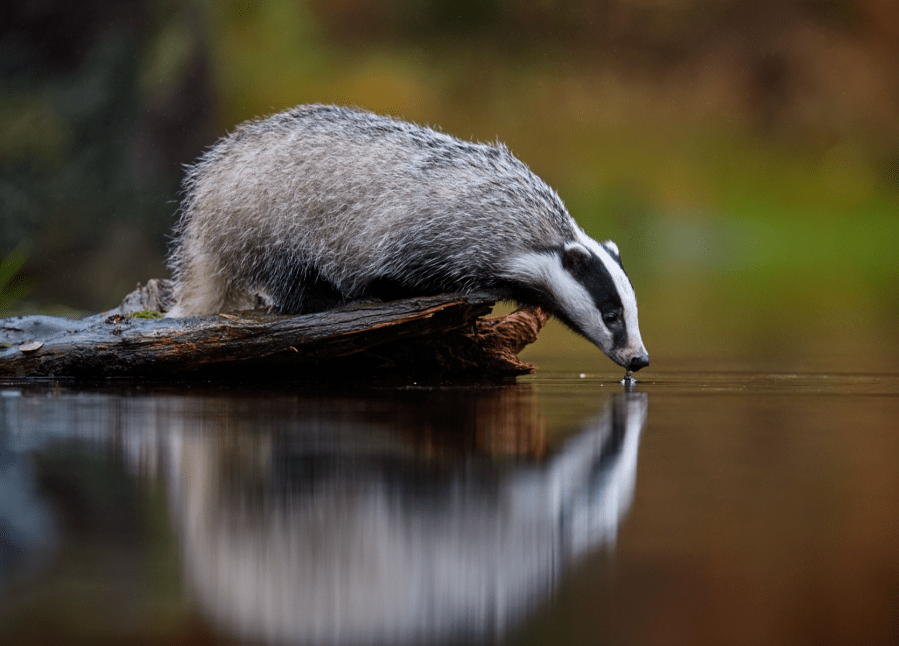
Badger crime is on the up – telltale signs include a disturbed sett, a group of people entering woodland with spades and dogs, and dead or injured animals. Hare coursing, which became illegal in 2004, also still takes place in some parts of the country, particularly in Lincolnshire, Cambridgeshire and Norfolk.
“Look out for groups with lurcher-type dogs crossing fields without keeping to the footpaths,” says Paul. “You might also see 4×4 vehicles driving at speed across the centre of fields damaging crops – a farmer wouldn’t do this.” Bearing witness If you suspect a crime is taking place, the primary consideration is your own safety.
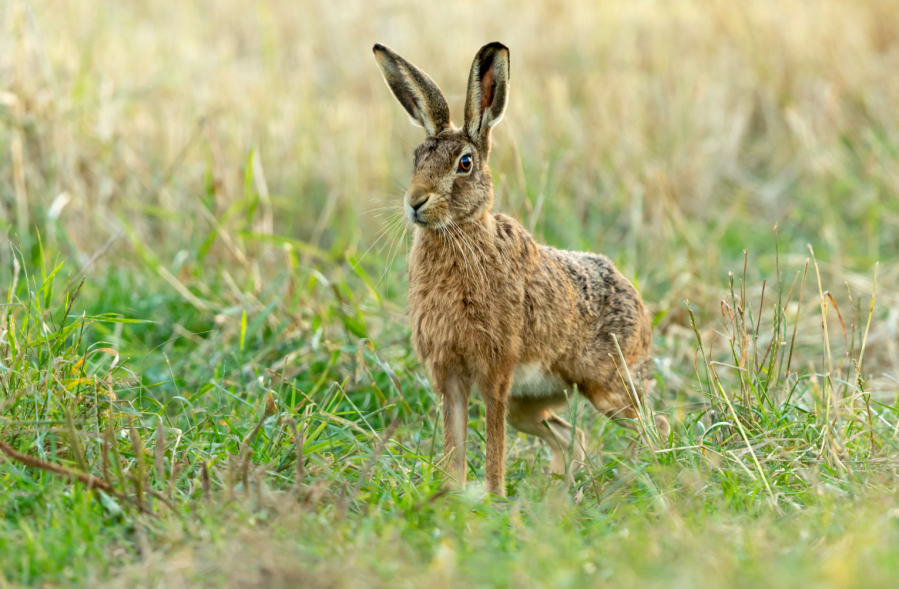
Never touch traps, dead birds or poisoned baits – and if you see somebody behaving suspiciously, don’t approach them. Instead, focus on gathering evidence without disturbing the scene. “Take photographs if you can, or make a sketch as soon as possible,” advises the team at Operation Owl, a venture aimed at raising awareness around raptor persecution. “Also, take photographs of the surroundings and any landmarks to help officers relocate the crime scene.
If photographing an object, try to use a coin or notebook for scale – providing it won’t disturb anything.” It’s important to take notes, accurately recording the time, date and the grid reference or what3words location. It can also be helpful to note suspect descriptions and take vehicle registration numbers. Once you’ve gathered evidence, report the crime to the police.
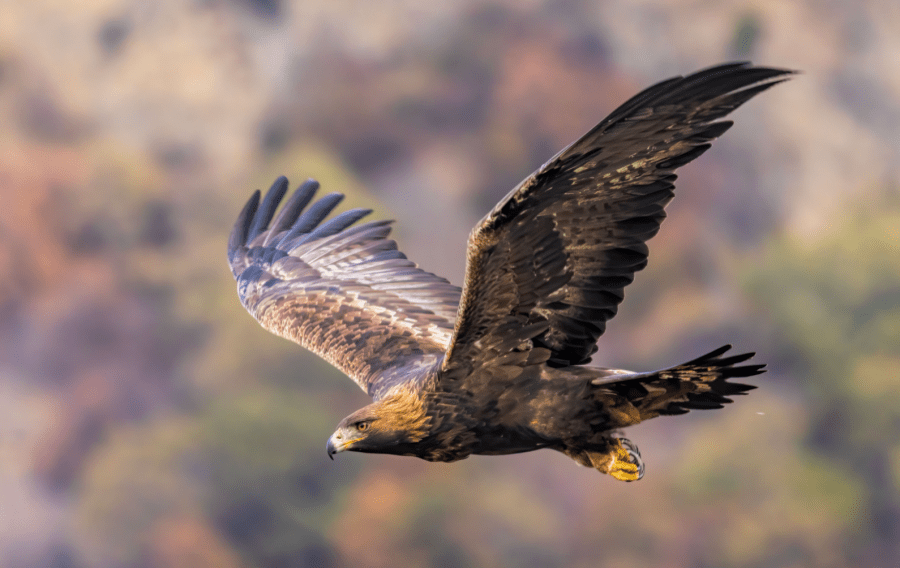
“Never think you are wasting police time,” says Paul. “Report your concerns on 101. Or use 999 if you are witnessing a crime occurring there and then – suspected hare coursing, for instance. If you have names of people involved, you can report this to police on 101 or Crimestoppers on 0800 555 111. You can provide your details for us to follow up on or stay 100% anonymous, the choice is yours.”
3 steps to combatting wildlife crime
Recognise: Learn to identify the signs of wildlife crime, which can include poisoned bait, pole traps, unenclosed spring traps, or groups of people behaving suspiciously.
Record: Never put yourself in danger – don’t move, touch or trample anything, and avoid confronting potential perpetrators. Take photographs, accurately record the location and the time, and note suspect descriptions and vehicle registration numbers.
Report: Call 999 if a crime is in progress or 101 to report a suspected crime. Ask to speak to a Wildlife Crime Officer and request an incident report number.
Raptor persecution hotspots
This RSPB map shows confirmed cases of bird of prey persecution incidents between 2009 and 2023.
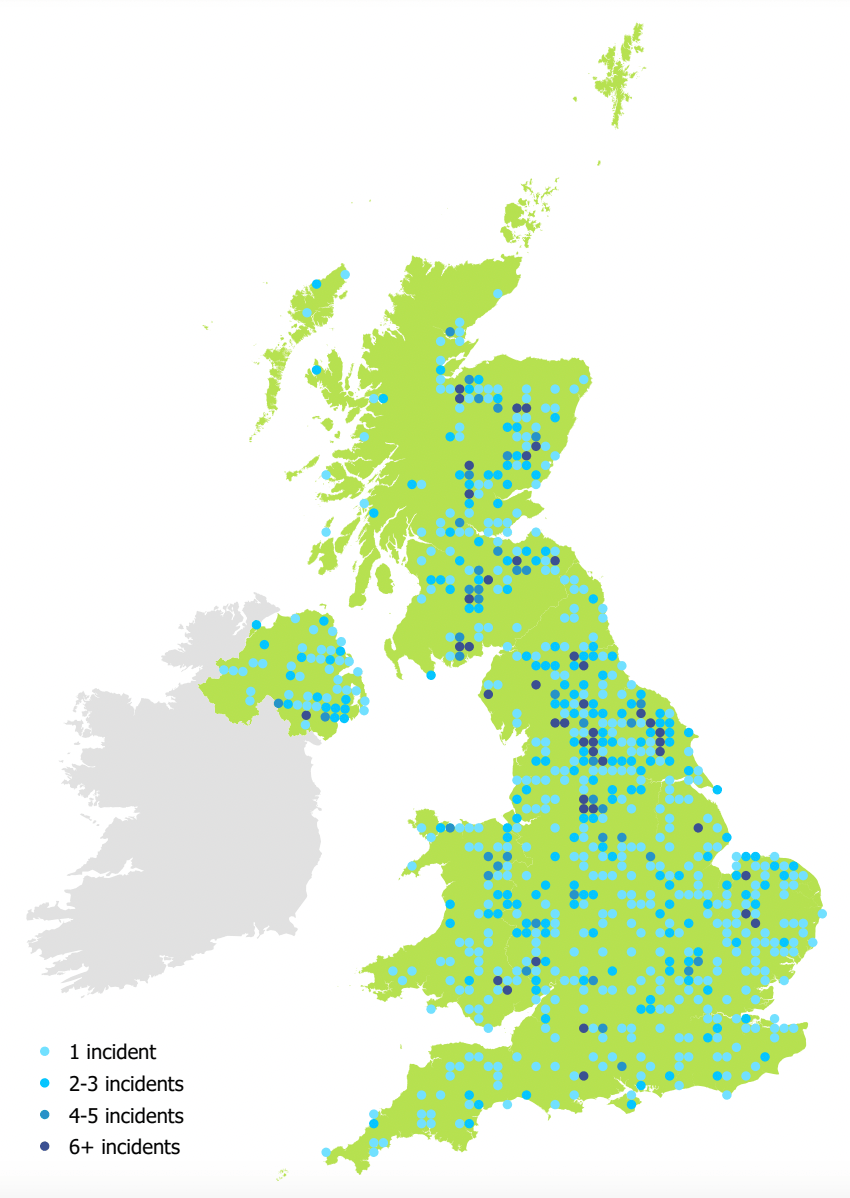
Wildlife crime in numbers
- 4,735 reported incidents of wildlife crime in England and Wales during 2023.
- 42% decrease in convictions between 2021 and 2022. In 2023, convictions hit an all-time low.
- 6,000 wild bird eggs confiscated in the UK during December 2024 – the largest ever seizure.
- 75% of people convicted of raptor persecution offences between 2009 and 2023 were linked to the gamebird shooting industry.
- 1 person jailed for raptor persecution in the 15 years leading up to 2024.
- 51 golden eagles killed, tampered with or mysteriously disappeared between 2009 and 2023.
- £800,000 allocated by the government in March 2025 to support the National Rural Crime Unit and National Wildlife Crime Unit.
Do not disturb
Could you be unwittingly committing wildlife crime while out walking? Not all crimes are deliberate – some take place as a result of ignorance or accident. “Its important to be aware of where you are when you are enjoying the outdoors and what other species may also call that place home,” says Paul.
Tips for walkers
When walking across moorland, stick to designated paths rather than going off-piste. We have a lot of ground-nesting species of birds that may at best be disturbed and at worst be trampled upon when you walk on their nest. It’s worth bearing in mind that wild bird nests are protected by UK law.
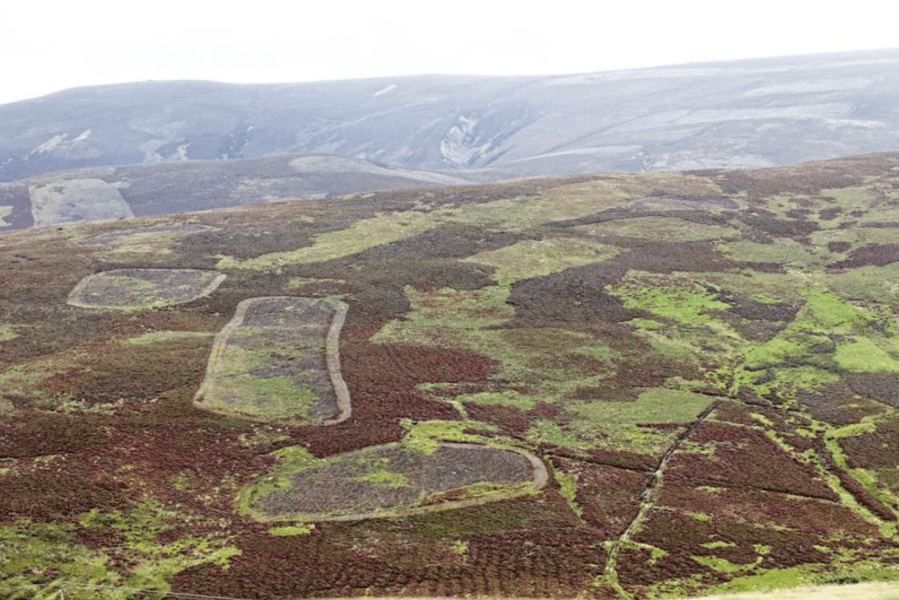
Tips for climbers
When abseiling or rock climbing, be aware of the possibility that your route may pass near to a peregrine falcon’s nest. They like to use rocky ledges on exposed rock faces to raise their young – don’t be the cause of the nest abandonment. We have heard of instances where photographers, keen to get a close up shot of an osprey nest, have climbed the tree that the nest is in. It’s totally irresponsible and potentially leaving themselves open to criminal prosecution.
Tips for swimmers and paddle sports
Paddleboarders, kayakers and canoeists: keep well away from marine life like dolphins, porpoises and whales. Likewise, don’t get too close to seals and their pups if you are on the beach. RSPCA advice is to stay at least 100m away and keep dogs on a lead to avoid conflict there.




